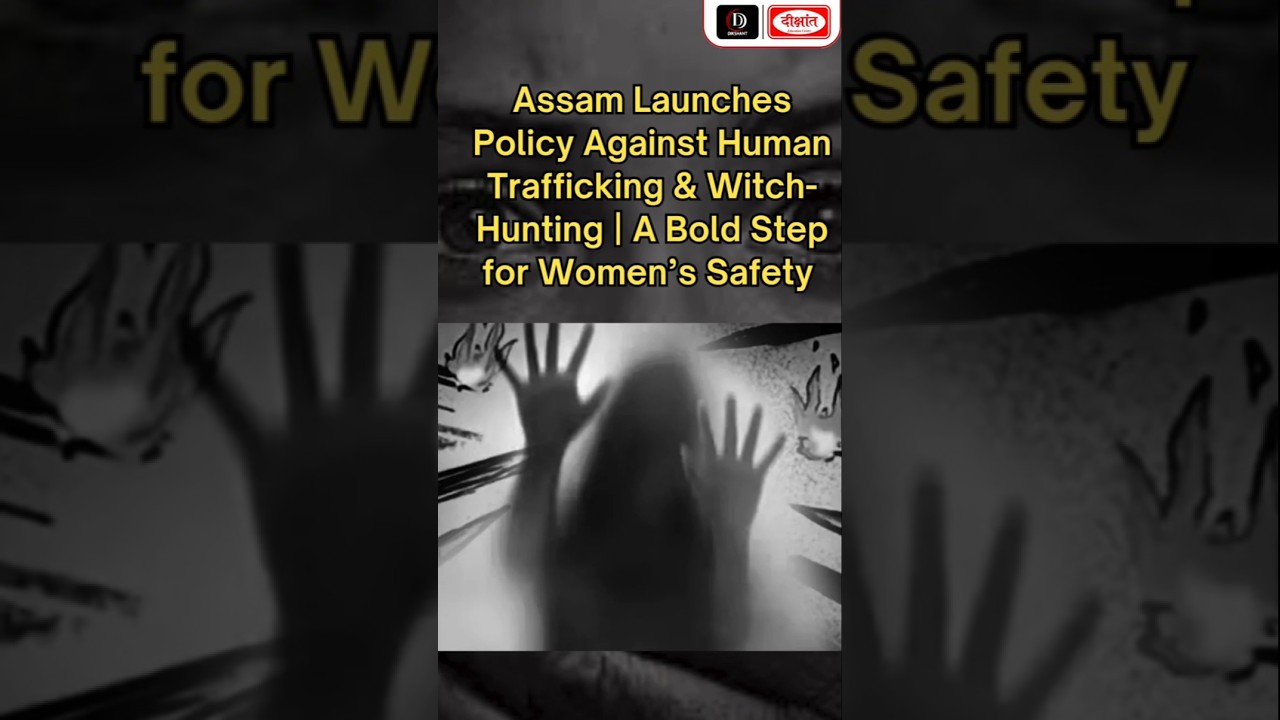
NGOCSTIP – Assam’s Bold New Policy aims to tackle two serious social issues. These are human trafficking and witch-hunting. Both crimes disproportionately affect women and girls in the region. The government has introduced a comprehensive state policy to address these problems. This policy focuses on prevention, protection, and rehabilitation. It is designed to create a safer, more equal society. The approach involves multiple departments working together for effective results.
Assam’s Bold New Policy recognizes the urgent need for change. Human trafficking has long been a major concern in the state. Furthermore, witch-hunting, often linked to superstition and social stigma, also affects many innocent lives. Consequently, the policy was created after consultation with various experts and stakeholders. It aims to provide a coordinated and holistic response to these challenges. Moreover, the government has committed to supporting survivors with care and dignity. This initiative is therefore seen as a milestone in Assam’s social justice efforts. In addition, strong collaboration between departments is emphasized. Ultimately, the policy seeks to create lasting impact and safety. Thus, Assam takes a decisive step forward in combating these crimes.
“Read about: Global Momentum Builds: Anti-Trafficking Efforts Surge in May 2025”
The policy outlines clear preventive measures to stop crimes before they occur. Therefore, authorities will increase awareness campaigns in vulnerable communities. Additionally, education programs will teach people about dangers and signs of trafficking and witch-hunting. Protective steps include strengthening law enforcement and legal support. Moreover, police forces will receive special training to handle cases sensitively. Rehabilitation programs help survivors recover fully. They include counseling, skill development, and social reintegration. Importantly, the policy protects survivors from stigma and blame. Finally, health, legal, and social welfare departments collaborate for comprehensive care.
Women and girls suffer the most from these crimes in Assam. The policy highlights their protection and empowerment. Support services will address their unique needs. Efforts focus on preventing child trafficking and exploitation. Authorities will expand shelters and safe houses to offer immediate refuge. Survivors will receive accessible legal aid to pursue justice. Communities are encouraged to change harmful social norms. The policy promotes gender equality and human rights as core principles.
“Read more: Unvaccinated and Vulnerable: The Return of Preventable Diseases Among Children”
Assam’s Bold New Policy uses a multi-departmental approach. Different agencies receive specific roles from the government. Officials will monitor and evaluate the policy regularly to ensure success. They will improve data collection and reporting mechanisms. This process helps identify gaps and areas needing attention. Police, social workers, and NGOs strengthen their coordination. They conduct training programs to build capacity across sectors. The state government allocates necessary resources to support these initiatives. It also pursues partnerships with national and international organizations. This broad cooperation aims to sustain and make the policy effective.
The policy emphasizes involving survivors in decision-making processes. Their experiences shape better support systems. Community leaders and local groups play active roles. They educate and empower communities to reduce social stigma. Public participation encourages awareness and vigilance. Grassroots involvement strengthens the fight against trafficking and witch-hunting. Advocacy and empowerment programs amplify survivors’ voices. The policy focuses on healing and rehabilitation for survivors.
Despite strong efforts, significant challenges still remain in fully eradicating these crimes. Deep-rooted social beliefs and economic factors contribute greatly to their persistence. Moreover, enforcement gaps and resource limitations also pose serious difficulties. However, the policy’s comprehensive framework offers genuine hope for positive change. Therefore, continued political will and community engagement are absolutely vital. Additionally, the government plans to review and update the policy regularly. Success will be measured not only by reduced crime rates but also by improved survivor welfare. Ultimately, Assam’s Bold New Policy is a pioneering step towards justice and equality. In conclusion, coordinated efforts must continue to overcome remaining obstacles.